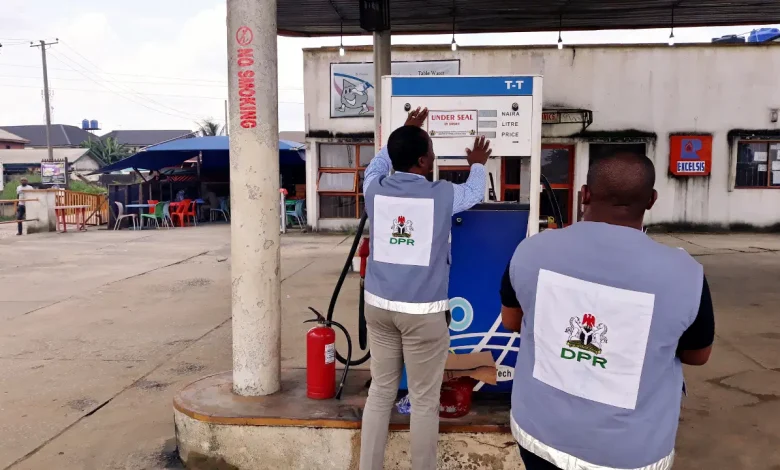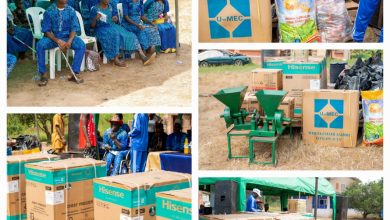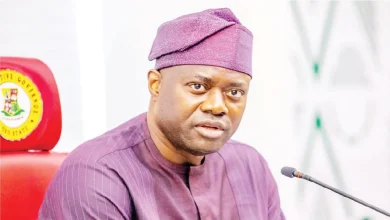
THERE are indications of increasing incidents of manipulation of pumps at filling stations by petrol attendants and their collaborators aimed at cheating consumers of Premium Motor Spirit, PMS, also known as petrol, amounting to millions of litres yearly.
According to the Nigerian Midstream and Downstream Petroleum Regulatory Authority, NMDPRA, Nigerians consume 50 million litres of petrol daily.
But checks by Financial Vanguard revealed that the regulator, NMDPRA does not inspect these petrol stations to ascertain compliance with the rules of the game, in terms of checking functional dispensing machines and other malpractices by marketers.
Financial Vanguard’s findings showed that many pump attendants, who dispense petroleum products increasingly cheat consumers through pump manipulation and other sharp practices.
The checks indicated that the attendants earn meagre wages, as little as N20,000 monthly, and are pushed by abject poverty and the current hardship in Nigeria to extort customers.
Recounting a recent incident in Lagos, Badmus Samami, a victim, said: “I recently drove to a major filling station, located at Iyana Isolo in Lagos to buy petrol at N20,000 with my Automated Teller Machine, ATM card. After dispensing, I paid and insisted on getting a receipt. The attendant gave all reasons, including lack of a paper to print, for not providing the receipt.
“I still insisted and many people that gathered supported me. Eventually, I was given the receipt showing that N22,000 was taken from my account. The attendant apologised, adding that it was an error. I believe that happened because of distraction at the point of purchase. Some attendants can do all kinds of things, including blocking you from viewing what they are doing and presenting other items for you to buy in order to cause confusion.”
Similarly, John Theophilus, a motorist, said: “There is a filling station along Oshodi I often patronised but when I suspected that attendants had ways of manipulating the pumps to under dispense the product directly into my tank, I decided to use a 25-litre jerry can to buy.
“One day, the filling station meter showed that they supplied me with 25 liters of the product but it did not fill-up. I insisted that the jerry can should be filled before paying. After all the arguments that attracted many people, the attendant complied and I paid.”
Cheating usually intense during scarcity
A keke rider, in Uyo, Akwa Ibom State, Etim Ufot, told Financial Vanguard: “Cheating is usually intense when there is scarcity. We, Keke riders, always buy with our one-liter jar. We avoid any filling station we find cheating people, and they lose customers. So many would rather not indulge in cheating or do it mildly.”
Our reporter visited Udofot Petroleum, a private retail outlet located at 21 Nwaniba Road, in Uyo, the state capital.
He demanded one liter of Premium Motor Spirit (PMS), which the station dispensed at N900 per liter at 11.05 am.
Joy, the attendant, said, “it is one liter for one liter that we sell here. Monitors are always around, and my boss doesn’t compromise the rules.”
The NNPC Station, located near the former First Bank Plaza in Uyo, sold a liter to our reporter for N890 at 11.30 am on Wednesday, September 10.
Some pumps not working properly
One of our reporters visited three filling stations: Uddy King and Agims in Atimbo and Shafa on Etta Agbor in the Calabar Municipality, Cross River State.
He purchased one liter from pumps 9 and 10 and noticed the quantity varied at Uddy King. It took 1.13 liters to fill up his container at pump 9; only pumps 11 and 12 gave the exact quantity.
He demanded an explanation from the manager, who gave the excuse of power failure
He said the source of power and calibration could make the pump not pump fast enough.
The manager, however, said that as a genuine business serving the public, they usually shut down a pump once they noticed the variation was high or below 0.5. As of the time of filing the report, they were selling at N890 per liter.
At Agims filling station, at Atimbo Roundabout, the situation was a bit different because the pumps were not marked like those of Uddy King. The one-liter container was not filled after the reporter paid for one liter at two separate pumps.
The attendant claimed the content was one liter and that the reporter’s container was bigger than one liter.
Fuel extortion complaints rampant across Ondo
No doubt, complaints by people about fuel pump manipulation and extortion at the filling stations are rampant across Ondo State.
The only exceptions are NNPC, MRS and other major filling stations. Findings showed that their meters are not manipulated.
But almost all the independent marketers are guilty of extortion and fuel pump manipulation. As a result of this, motorists don’t get full value for their money.
Consequently, motorists, especially commercial motorists, Okada operators and motorcyclists, prefer to patronise only the major marketers.
Financial Vanguard’s visit to two independent filling stations, Bayduk, located at Oba Adesida road in the Akure metropolise and Farbas located at Arakale, in Akure, the state capital, showed that aside from selling the product for N860 per litre, their meters are not dispensing accurately, thereby extorting unsuspecting motorists.
Some motorists interviewed confirmed that they preferred patronising the major marketers because their meters were accurate and not under dispensing the product.
Remi Alabi, a customer, told Financial Vanguard: “The petrol dealers have compromised by tampering with their meters to cheat unsuspecting motorists. This cheating is rampant in the filling stations owned by independent marketers across the state.
“Aside from under-dispensing at many filling stations, the petrol attendants also adjust the meters to cheat motorists.”
Consumers distrust many independent stations in Ekiti
The disparity in metre calibration between major and independent marketers in Ekiti State is minimal. For some reasons, commercial motorists in Ado-Ekiti tend to patronise major marketers’ filling stations that are considered reliable while independent marketers’ filling stations are deserted.
The reason is not far-fetched, as commercial motorcyclists, popularly known as Okada riders, believe that major marketers’ filling stations are more trustworthy in their fuel calibration, whereas independent marketers’ filling stations often manipulate their meters to dispense lesser quantities.
Investigation by Financial Vanguard revealed that Okada Riders and Taxi drivers patronise filling stations, such as NIPCO, BOVAS, NNPC, AA Rano and Bovas, unlike independent marketers’ filling stations like Phenrose Oil and Gas, Sambola Oil and Gas Ltd, Glofes Filling Station, among others.
Apart from Phenrose Oil and Gas that sells at N875 per litre like major marketers’ filling stations, Sambola Oil and Gas Ltd, Glofes Filling Station and others sell around N880, N885 and N890 respectively, with lesser patronage, owing to manipulation of fuel meters
Speaking with Financial Vanguard at BOVAS filling stations located in Adebayo area and Secretariat Road, commercial bus drivers and Taxis, said they prefer to patronise major marketers because their fuel pumps are not manipulated like many independent marketers.
A motorcyclist, Aina Ilori said he only patronises independent marketers when he’s in a hurry and can’t withstand the queues at major filing stations.
To confirm the veracity of the claims, Vanguard bought fuel from several filling stations such as NIPCO, located at Ben Folarin, Irona Road, Ado-Ekiti and Phenrose Oil and Gas, located beside Fayose Market, Ado-Ekiti.
Drivers, okada riders, tricycle operators lament in Ibadan
The persistent manipulation of fuel pumps at some filling stations in Oyo State has become a worrisome issue for motorists, with many complaining that they hardly get full value for their money.
Investigations by Vanguard across Ibadan and its environs revealed that commercial drivers, okada riders and tricycle operators have been the worst hit, accusing some stations of sharp practices that amount to extortion.
At Ojo, a commercial bus driver, Mr. Akeem Oladimeji, lamented his experience at a particular station. “We know the filling stations that cheat us. You will buy fuel of N5,000 and before you even get to the road, the gauge has dropped as if you only bought half of that.
“Some stations like BOVAS and NNPC are still fair; when you buy, you see the difference. But some private ones are notorious, and if you complain, their attendants will insult you.”
A tricycle operator at Mokola, simply identified as Tunde, said he avoids certain stations altogether. “There is one near us here that we don’t even go to again.”
“Their pump is heavily adjusted. Once you buy from them, your tricycle will start jerking because the fuel is not only short, it is sometimes mixed. We now stick to stations like SAO and BOVAS where at least you know what you are getting,” he explained.
An okada rider, Mr. Sikiru Ajayi, said, “Our own pain is worse because even one litre is important to us. Some stations will sell what they call one litre but when you measure it with a bottle, it won’t reach. We always use bottles and small cans to test them. That’s why you see us queuing at trusted stations while the others remain empty.”
State committee intervenes in Kebbi
Reacting to frequent manipulation and extortion of consumers, the government of Kebbi state has put in place an arrangement to assist in tackling the illegalities.
In an interview with Financial Vanguard, Muhammad Mustapha, a public affairs commentator, said: “Before now they hugely under dispense fuel almost in eighty percent of filling stations they extort their customers but Kebbi state government listened to the cries of people and set up committee from the ministry of commerce and industry to enforce the customer protection rights in Kebbi.”
NMDPRA lacks adequate personnel, absent at filling stations
However, officials of Nigerian Midstream and Downstream Petroleum Regulatory Authority, NMDPRA, the agency established to regulate and monitor midstream and downstream operations, regulate the bulk storage, distribution, marketing, transportation of petroleum products as well as monitor and enforce compliance with the terms and conditions of licenses, permits, and authorizations issued by the authority, were absent at the filling stations.
Checks by Financial Vanguard indicated that the agency does not have adequate personnel to monitor compliance at retail outlets nationwide.
The Authority’s Chief Executive, Engr. Farouk Ahmed, did not respond to telephone calls and text messages at the time of filing this report.







